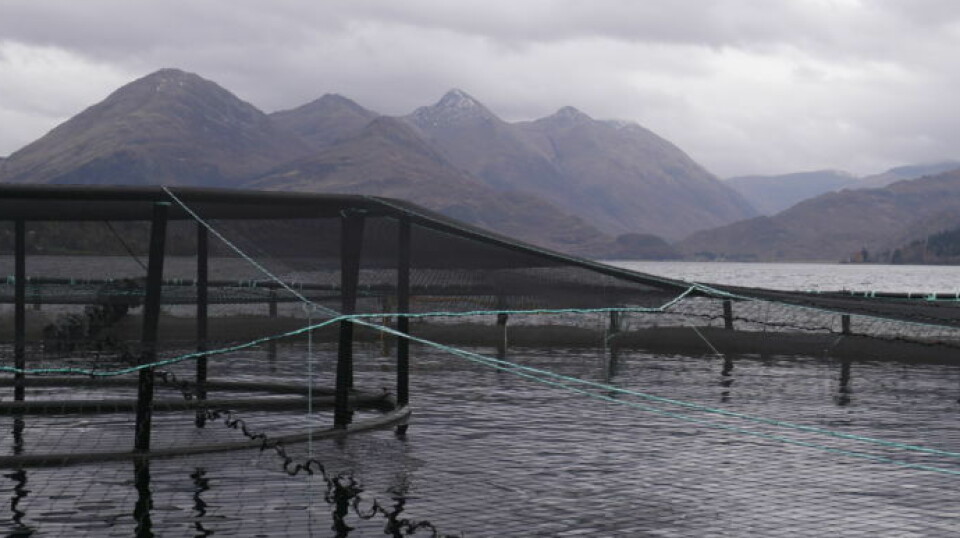

Showing aquaculture how to win friends and influence people
A global study of different regional attitudes towards the sector may lead to more effective communication strategies, says its lead author
Fish farmers and other aquaculture practitioners must try harder to promote their cause and should prioritise transparency, communication, and accountability, a global study of social perceptions of aquaculture recommends.
As the aquaculture industry continues to grow in scale and value, a focus on shifting the attitudes and perceptions of passive supporters and neutral observers may be needed to win a campaign rather than just targeting active allies or opponents.
The study led by Dr Mausam Budhathoki, of Stirling University’s Institute of Aquaculture, looked at 151 academics studies and more than 800 newspaper articles from the UK, Denmark, France, Spain, Turkey, China, Poland, Hungary, and India to determine if they mentioned multiple dimensions of sustainability before portraying aquaculture as positive, negative, or neutral.
The main focus of most of the academic studies was on the perceptions of users, including consumers. Attitudes varied between countries and between the types of aquaculture carried out.
Risk perception
Newspaper coverage also varied, with UK articles less positive than those abroad, which partly indicated the stakeholder groups represented and the type of aquaculture reported.
“In the United Kingdom, civil society stakeholders were predominantly represented in newspaper articles focusing on risk perception,” wrote the study’s authors. “There is growing concern regarding the negative environmental impact of finfish aquacultures, such as sea lice infections, fish escapees to the wild, and pollution in general. The overall sentiment of the articles is negative due to the concerns raised about animal welfare and negative environmental impacts.
“Positive newspaper articles focus on socioeconomic benefits and technological innovations in finfish aquaculture. For instance, Scotland is a leader in producing high-quality salmon products for consumers, reducing seafood trade deficits, boosting the local economy, and providing equal opportunities for women.”
Generally positive
In Denmark, 48% of articles were positive; in Spain the predominant sentiments of newspaper articles were positive; and in Poland, the newspaper articles were generally positively focused on growth and development and policy and regulation aspects.
In China, most stakeholders represented in newspaper articles are government officers (63%), followed by fish farming enterprises (51%) and scientists (16%) who emphasise the growth and development of aquaculture.
The authors said aquaculture coalitions (pro-aquaculture industry groups) will increasingly need to respond to an evolving aquaculture discourse.
Different strategies
“One way to do this might be to implement different strategies (involve, collaborate, defend, or monitor) for ‘effective’ communication with stakeholder groups according to their positions regarding aquaculture,” they wrote.
“Furthermore, this also connects with the advocacy Spectrum of Allies theory that divides stakeholder groups into five subsystems, (1) active allies, (2) passive allies, (3) neutrals, (4) passive opponents, and (5) active opponents. The theory indicates that a focus on shifting the attitudes and perceptions of passive supporters and neutral observers is needed to win a campaign rather than just targeting active allies or opponents.”
Evidence-based policies
Lead author Budhathoki said: “The implications of this research extend far beyond academia. Policymakers, industry stakeholders, and international organisations can leverage these findings to inform evidence-based policies and initiatives aimed at promoting sustainable aquaculture practices globally.
“The findings from this research could benefit the aquaculture sector by providing insights into effective communication strategies for aquaculture coalitions. These strategies could involve different approaches to engage with stakeholders, including involvement, collaboration, defence, or monitoring, depending on their positions regarding aquaculture. By targeting passive supporters and neutral observers, aquaculture coalitions can potentially shift attitudes and perceptions towards more positive views of aquaculture.
“Additionally, closer engagement with mainstream media and civil society groups interested in transforming food systems may be necessary to promote sustainable aquaculture practices. Therefore, aquaculture practitioners in different countries and international organisations may consider incorporating the insights from the research when shaping societal perceptions of aquaculture.”























































